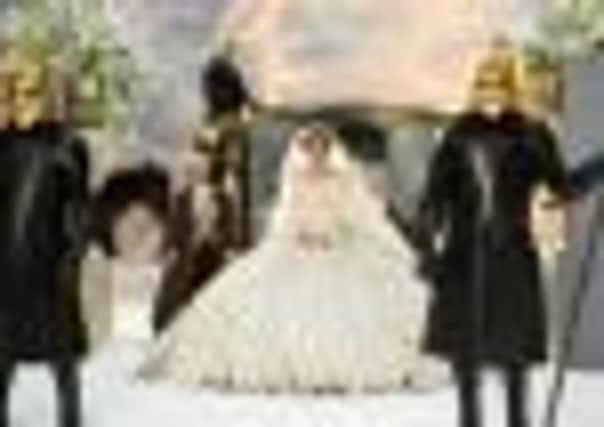Film review: Mirror Mirror


Directed by Tarsem Singh, a visual stylist par excellence (see The Fall) with a shaky grasp of storytelling (see The Cell and the camp overload of last year’s Immortals), the film is a conceptually wonky, joke-free mess in need of game-raising star performance that’s never quite forthcoming.
Instead we have Roberts as the pathologically narcissistic evil Queen, whose reckless indulgence of her own vanity has plunged her purloined kingdom into bankruptcy and fuelled her irrational mistrust of blossoming stepdaughter Snow White. Gurning, preening and choking on her British accent and a series of deliberately anachronistic, self-aware gags, Roberts attacks the part with the bravado of someone blissfully unaware that what they’re saying and doing just isn’t funny. What could have been an amusing riff on the fairytale-like nature of her Hollywood-conquering breakout role in Pretty Woman – beautiful woman targets rich men, turns out not to have a heart of gold, goes to seed as a result – is ruined by an unwillingness to properly mess with her image: the Queen is neither grotesque nor menacing enough for the film to be anything more than just another half-formed star vehicle.
Advertisement
Hide AdThe miscasting of the blandly pretty Lily Collins as Snow White doesn’t help. Hardly a credible challenger to Roberts’ crown, Collins (daughter of Phil) has her work cut out trying to provide the film with a believable reason as to why Snow White’s coming-of-age has the Queen so bent out of shape. To be fair, the film doesn’t exactly provide her with a particularly meaty revisionist character arc. Instead, screenwriters Melissa Wallack and Jack Keller – allegedly reworking the original Brothers Grimm version of the story – serve up a limp, Recession-themed tale in which the Queen banishes Snow White to prevent her from winning the heart of a nice-but-dim prince (Armie Hammer) whom the Queen wants to marry in order to replenish her rapidly dwindling fortune.


Faux progressive sexual politics are also thrown into the mix by subsequently revealing Snow White to be something of an ass-kicking smarty-pants who has not only grown tired of the passive role fairytale heroines are expected to play, but is determined to demonstrate her capabilities when it comes to saving both herself and the day. Alas, while the film pays lip service to these ideas, it doesn’t bother to flesh them out and, in the end, Snow White comes across as yet another diluted version of the Cameron Diaz-voiced Princess Fiona from the original Shrek.
Indeed, what Mirror Mirror reflects most clearly is the creative bankruptcy of the post-Shrek family filmmaking culture, with producers, writers and directors still seemingly convinced that merely acknowledging the tropes of a genre with a self-referential nod and a wink to the audience is the same thing as subverting these tropes. It’s not, but there’s apparently no telling the people behind this film, who have reconceived the seven dwarves as a band of marauding ninja-skilled highwaymen who – in a weak pop at the infinitely superior Disney version of the story – reckon robbing people beats “working down a mine”.
None of the dwarves have particularly memorable character traits either, and their copyright-avoiding monikers – Half Pint, Napoleon, Chuckles, etc – hardly help distinguish them. In truth, their presence feels like an afterthought, as if they’ve been awkwardly crammed into a movie that – thanks to it being told from the Queen’s perspective – no longer has a place for them. This is further evident from the way Hammer’s bumbling, ineffectual, frequently shirtless prince not only gets more screen time than them, but is turned into the cutesy comic relief, especially after being doused with an errant love potion that makes him act like a hopelessly devoted puppy – a terrible gag that Hammer plays with admirable conviction until it’s randomly dropped from the story.
It’s all indicative of the confused thinking behind the film, which – unbelievably – can’t even deliver in a satisfying way on its titular scene. Not content with having the Queen simply stand in front of a magic looking glass in order to be confronted with news she’d rather not hear, Singh – clearly spying an opportunity to cram in yet more ostentatious visuals – turns the mirror into a gateway to an alternate universe into which the Queen must pass so she can have pseudo-therapy sessions with her likeness about her looks.
Neither funny nor subversive, it feels like a lot of unnecessary tinkering for the sake of it – something that could be said of the film as a whole. The diminished effect is one truth Mirror Mirror can’t shield us from.
MIRROR MIRROR (PG)
Directed by: TARSEM SINGH
Starring: JULIA ROBERTS, LILY COLLINS, ARMIE HAMMER, NATHAN LANE
Rating; **